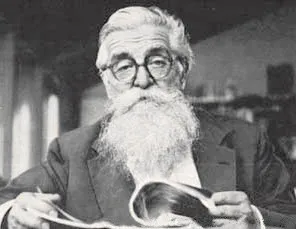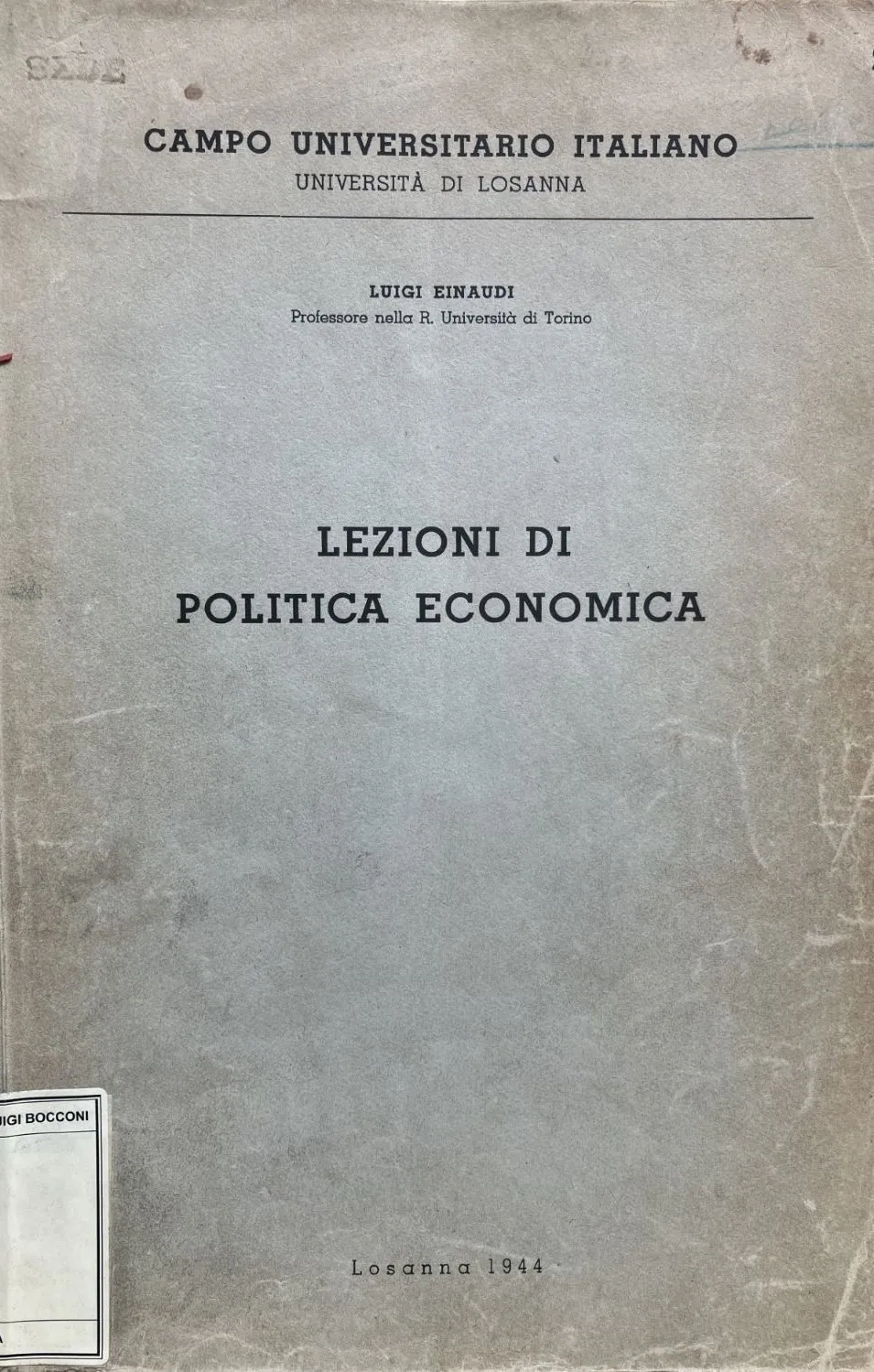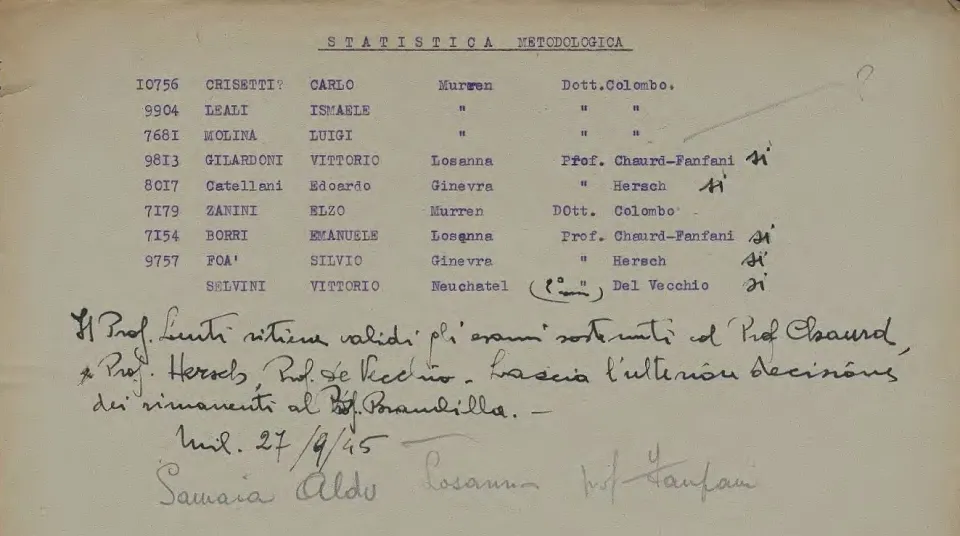The University in Exile: The University Internment Camps in Switzerland, 1943-1945
After the armistice of September 8, 1943, many Italian military students—as well as civilians—sought refuge in Switzerland to avoid surrendering to the Nazi army, which was occupying Italy. They were not considered prisoners of war or formal internees but rather refugees fleeing a collapsing nation. Initially referred to as military refugees by the Swiss Federal Council in an attempt to facilitate their legal expulsion, they were eventually accepted into Switzerland, due to the impossibility of controlling border crossings and the growing solidarity of the Swiss population. In October and November 1943, a questionnaire distributed to the refugees revealed the presence of around 1,000 students and 120 university graduates. Like earlier cases involving refugees from Poland (1940) and France (1942), the decision was made to offer these students the opportunity to continue their university studies.
The Organization of the University Camps
To support this major educational and humanitarian effort, a Comité d’Aide aux Universitaires Italiens en Suisse was established in Lausanne, with the support of the Fonds Européen de Secours aux Étudiants (FESE). The committee was led by Plinio Bolla, Vice President of the Swiss Federal Tribunal in Lausanne, and Gustavo Colonnetti, a former professor at the Polytechnic University of Turin who had also taken refuge in Switzerland.
Given the difficulty of enrolling the students directly in existing universities, the decision was made to create university camps with a paramilitary structure near universities in French-speaking Switzerland, as French was the foreign language most widely known among Italian students. A special commission composed of Swiss and Italian professors selected students through oral exams based on their academic curricula. Starting in January 1944, university camps were opened in Geneva (Economics and Law), Lausanne (Engineering and Architecture), Fribourg (Humanities) and Neuchâtel (various disciplines).
Each camp operated under the supervision of Lieutenant Colonel Max Zeller, who appointed an academic rector, a university faculty coordinator, and a military commander (chef des études) - a hierarchical structure typical of military organizations. Roughly half of the 1,000 applicants were admitted, and additional camps were later opened in the Bernese Oberland (notably in Huttwil and Mürren) to accommodate many of those initially excluded.
The Italian University Camp in Lausanne became the most prominent, thanks to the leadership of Colonnetti, who served as its rector. He recruited outstanding faculty, organized lectures and cultural events, and founded the Centre for Studies on Italian Reconstruction, which he co-chaired with Luigi Einaudi.
Despite the challenges posed by the students’ diverse academic backgrounds, there was a clear effort to uphold academic standards and ensure that exams would be recognized once students returned to Italy. To this end, a Swiss-Italian examining board was created: an Italian professor sat on each board to verify program equivalencies and translate Swiss grades into the Italian system. This allowed for the official recognition of coursework after the university camps closed between May and June 1945.
Documents in Bocconi Library and Historical Archives
At Bocconi University Library, there are 34 pamphlets published by FESE, most of which relate to courses held at the Geneva university camp, attended by 200 students and supported by prominent jurists, including Francesco Carnelutti (who had taught Industrial Law at Bocconi from 1909 to 1912), Donato Donati, Alessandro Levi, Piero Sacerdoti and Vittorio Tedeschi, and renowned economists, especially Luigi Einaudi (himself a civil refugee in Switzerland from September 26, 1943, and in Geneva from October 1944). The collection also includes Gustavo Del Vecchio, who had been a professor and rector at Bocconi before being removed due to the racial laws, and Amintore Fanfani. Ariberto Mignoli, who would later become a long-time professor at Bocconi and founder of the Rivista delle Società, wrote two pamphlets during his time as an assistant at the Geneva university camp. One was co-authored with Pietro Chiovenda and Vittorio Gattinara based on the course by Alessandro Levi, supplemented with other texts, while the other was based on the course by Georges Sauser-Hall, also supported by additional texts. Other assistants who wrote pamphlets were Vittorio Paretti on the lessons of Del Vecchio and Giuseppe Salto (a Bocconi graduate with Libero Lenti in 1940/41) based on the lessons of Édouard Folliet.
In Bocconi Historical Archives (ASBOC), there is also documentation on the exams taken by Bocconi students at the camps of Huttwil and Mürren (Fondo Buste AB, Fascicolo Esami Svizzeri convalidati sostenuti da nostri studenti residenti provvisoriamente in Svizzera durante gli eventi bellici). In addition to the correspondence between the Italian university camp at Huttwil, Bocconi University, and the Ministry of Foreign Affairs from 1944 to 1945, the file contains a list of names of students temporarily residing in Switzerland during that period.
After the war, with the restoration of democracy and the return of the students, the Academic Council was tasked with determining the validity of exams taken in Switzerland. After extensive debate, the Faculty Council decided to assign individual professors the task of verifying the actual preparation of students who had attended the Swiss university camps through oral exams.

Gustavo Colonnetti (Source: Wikimedia)

Handout of Luigi Einaudi's lectures (Source: Bocconi Library)

Detail from the record of recognition of examinations taken (Source: ASBOC)